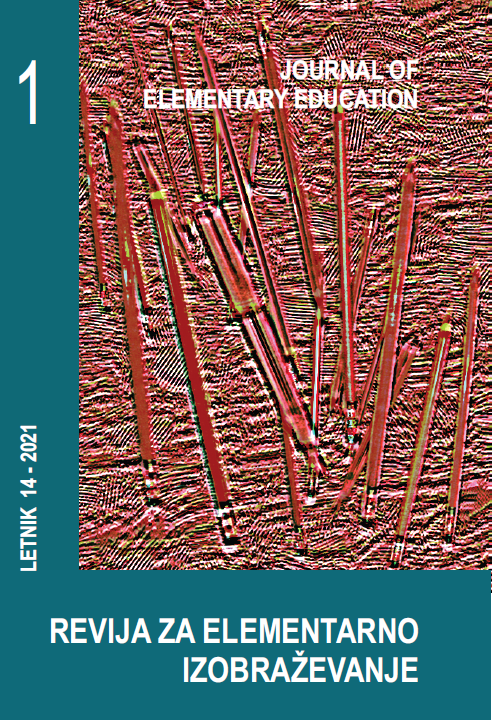Teachers’ Knowledge Regarding Children’s Health at the Elementary School Level
Abstract
This article is based on one of the research questions in a larger study that aimed to assess the impact of the school health program at elementary schools in Punjab, Pakistan. It explores whether the school health program was helpful in enhancing teachers’ knowledge regarding major health issues among school children - anaemia, iron deficiency, malnutrition, asthma and breathing problems, and seasonal illness. The study revealed some significant findings, which are discussed with reference to the previous literature; conclusions are reached and recommendations given to improve teachers’ knowledge and skills for improving school health.
Downloads
References
Ahmad, F., & Danish, S. H. (2013). School health services: A neglected sphere of influence in Pakistan. Journal of Pakistan Medical Association, 948-949. Retrieved from http://www.jpma.org.pk/full_article_text.php?article_id=4424
Arif, G. M., Nazir, S., Satti, M. N., & Farooq, S. (2012). Child Malnutrition in Pakistan: Trends and Determinants. PIDE, NUST. Islamabad: Pakistan Institute of Development Economics
Assefa, S., Mossie, A., & Hamza, L. (2014). Prevalence and severity of anemia among school children in Jimma Town, Southwest Ethiopia. 2. doi: https://doi.org/10.1186/2052-1839-14-3
Brennan, D. (Ed.). (2017). Is your child too sick for school? (WebMD) Retrieved from WebMD: https://www.webmd.com/children/guide/too-sick-for-school#1
Bundy, D., Shaeffer, S., Jukes, M., Beegle, K., Gillespie, A., Drake, L., . . . Wright, C. (1993). School-Based Health and Nutrition Programs. In D. T. Jamison, J. G. Breman, A. R. Measham, G. Alleyne, M. Claeson, D. B. Evans, . . . P. Musgrove (Eds.), Disease Control Priorities in Developing Countries (Second ed., pp. 3-5). New York: Oxford University Press and The World Bank. Retrieved from https://www.ncbi.nlm.nih.gov/books/NBK11783/pdf/Bookshelf_NBK11783.pdf
DAWN. (2017). 22.6m Pakistani Children Still out of School: Report. DAWN. Retrieved from https://www.dawn.com/news/1319300/226m-pakistani-children-still-out-of-school-report
Dilley, J. (2009). Research Review: School-based health interventions and academic achievement. Washington: Washington State Department of Health. Retrieved from https://here.doh.wa.gov/portals/14/Materials/130-083-HealthAcademic-en-L.pdf
Farooq, M. S. (2016). Causes of primary school students' dropout in Punjab: Primary school teachers' perspective. Journal of Elementary Education, 26(1), 2.
Filmer, D. (2003). Determinants of Health and Education Outcomes. The World Bank. The World Bank. Retrieved from http://siteresources.worldbank.org/DEC/600659-1109953265771/20383949/30377_32_Filmer_Determinants_of_Health_and_Education_OutcomesMay2003.pdf
Grant, R., & Brito, A. (2010). Chronic Illness and School Performance: A Literature Review Focusing on Asthma and Mental Health Conditions. New York: Children’s Health Fund. Retrieved from https://schoolhealthteams.aap.org/uploads/ckeditor/files/chronic-illness-and-school-performance.pdf
Jukes, M. C., Drake, L. J., & Bundy, D. A. (2008). School Health, Nutrition and Education for All: Levelling the Playing Field. London, UK: CAB International.
Luong, T. (2003). De-worming school children and hygiene intervention. International Journal of Environmental Health Research, 4.
Mesfin, F., Berhane, Y., & Worku, A. (2015). Anemia among Elementary School Children in Eastern Ethiopia. PLoS ONE, 10(4), 2. doi:10.1371/journal.pone.0123615
Miguel, E. & Kremeri, M. (2004). Worms: Identifying impacts on education and health in the presence of treatment externalities. Econometrica, 72(1), 5.
Mwanri, L., Worsley, A., & Masika, J. (2001). School and anaemia prevention: Current reality and opportunities—a Tanzanian case study. Health Promotion International, 16(4), 1-4. Retrieved from https://academic.oup.com/heapro/article/16/4/321/656748
National Health and Medical Research Council. (1996). Effective School Health Promotion: Towards health promoting schools. Health Advancement Standing Committee. Australia: Commonwealth of Australia. Retrieved from https://www.nhmrc.gov.au/_files_nhmrc/publications/attachments/hp1.pdf
PMU, & PHSRP. (2009-10). School Health Program. Retrieved from PHSRP: http://phsrp.punjab.gov.pk/shns.asp
Prasla, M., & Prasla, S. A. (2011). School health promotion – international perspectives and role of health care professionals. Journal of Ayub Medical College, 150-151. Retrieved from http://ayubmed.edu.pk/JAMC/23-1/Prasla.pdf
Ross, A. G., Papier, K., Luceres-Catubig, R., Chau, T. N., Inobaya, M. T., & Ng, S.-K. (2017). Poverty, Dietary Intake, Intestinal Parasites, and Nutritional Status among School-Age Children in the Rural Philippines. Tropical Medicine and Infectious Disease. doi:doi:10.3390/tropicalmed2040049
Seirawan, H., Faust, S., & Mulligan, R. (2012). The impact of oral health on the academic performance of disadvantaged children. American Journal of Public Health, 109(2). doi:10.2105/AJPH.2011.300478
Sisay, B. (2015). Assessment on the effects of child undernourishment on the academic performance of students in governmental elementary school: The case of “Atselibnedingel” governmental elementary school in Addis Ababa. Addis Ababa University. Retrieved from http://etd.aau.edu.et/bitstream/123456789/8103/1/16.Beiment%20Sisay.pdf
Taras, H. (2006). How Health Affects a Child's School Performance. (Newsroom, Producer) Retrieved from UC San Diego Health: https://health.ucsd.edu/news/2006/Pages/04_07m_Taras.aspx
UNESCO. (2000). A fresh start to health education. Learning Journal. Retrieved from http://www.unesco.org/education/tlsf/mods/theme_b/mod08.html?panel=5#top
UNESCO. (2012). Monitoring and Evaluation Guidance for School Health. Retrieved from http://www.unesco.org/new/fileadmin/MULTIMEDIA/HQ/HIV-AIDS/pdf/ENGLISH_M_E_Guidelines_for_web.pdf
UNESCO. (n.d). School Health Program: Teachers guide on school health program. Islamabad, Pakistan. Retrieved from http://unesco.org.pk/education/documents/publications/SHP- Guidelines_for_Teachers.pdf
WHO. (1997). Promoting Health through Schools. Geneva: World Health Organization. Retrieved from http://apps.who.int/iris/bitstream/10665/41987/1/WHO_TRS_870.pdf
WHO. (2003). School Deworming at a glance. WHO. Retrieved from www.who.int/intestinal_worms/resources/en/at_a_glance.pd
Copyright (c) 2021 Naila Sadaf, Afshan Huma

This work is licensed under a Creative Commons Attribution 4.0 International License.
